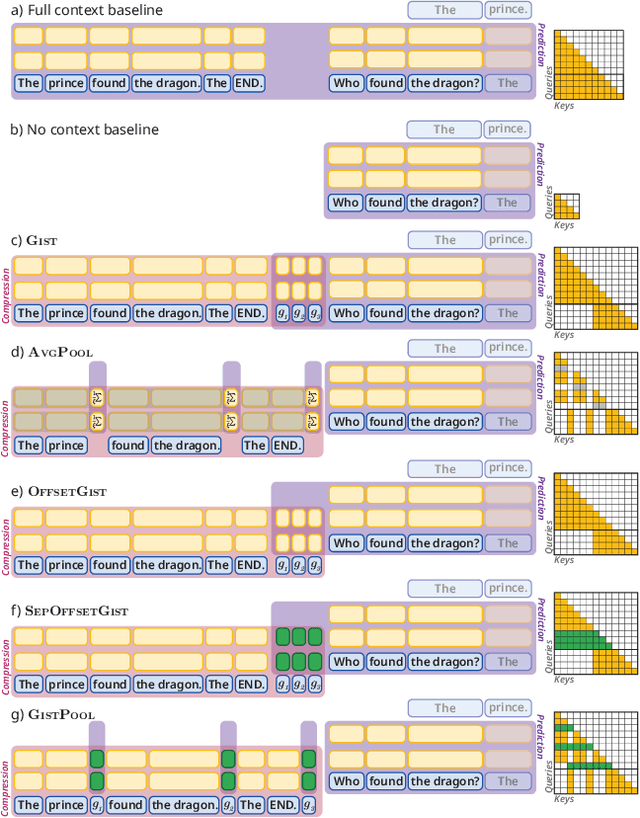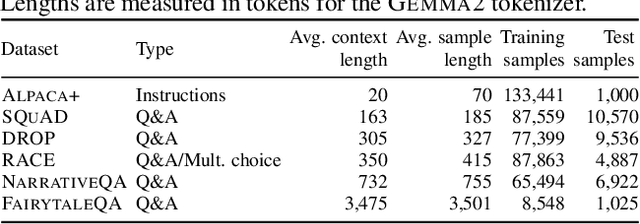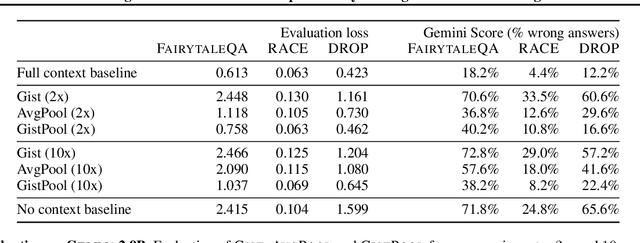Long Context In-Context Compression by Getting to the Gist of Gisting
Paper and Code
Apr 11, 2025



Long context processing is critical for the adoption of LLMs, but existing methods often introduce architectural complexity that hinders their practical adoption. Gisting, an in-context compression method with no architectural modification to the decoder transformer, is a promising approach due to its simplicity and compatibility with existing frameworks. While effective for short instructions, we demonstrate that gisting struggles with longer contexts, with significant performance drops even at minimal compression rates. Surprisingly, a simple average pooling baseline consistently outperforms gisting. We analyze the limitations of gisting, including information flow interruptions, capacity limitations and the inability to restrict its attention to subsets of the context. Motivated by theoretical insights into the performance gap between gisting and average pooling, and supported by extensive experimentation, we propose GistPool, a new in-context compression method. GistPool preserves the simplicity of gisting, while significantly boosting its performance on long context compression tasks.
 Add to Chrome
Add to Chrome Add to Firefox
Add to Firefox Add to Edge
Add to Edge